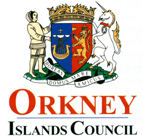Welcome to Dark Skies Orkney

The Midwinter Astronomy Festival
Orkney is to have a midwinter astronomy festival this year. Talks and stargazing will take place in various parts of the island over the twelve days from Saturday 10 to Wednesday 21 December.
There are activities in Kirkwall and Stromness, Birsay and Deerness, Sanday and Stronsay and North Ronaldsay. There will be talks and workshops on astronomy in various contexts – tourist guiding, cutting down light pollution, and night-time travel. Other events will include an astronomy dinner and an evening tour in the West Mainland with a hearty Orkney supper to follow.
Dark Skies Orkney comes about through funding from the Science and Technology Facilities Council (STFC) and Orkney Islands Council. The STFC funding has provided the services of astronomer Steve Owens for talks and workshops for schools, the tourism sector, and the community, along with telescopes for six Orkney schools.
Steve Owens was the UK coordinator of the International Year of Astronomy in 2009, and before that was the manager of the Glasgow Science Centre planetarium. He studied astronomy at Glasgow University, where he also took a master’s degree. As a freelance dark sky consultant, he has helped to set up the UK’s first three dark sky places – Galloway Forest, the island of Sark, and Exmoor – and is now working with a further seven other areas to assist them to attain dark sky status.
In 2009 Steve became a Fellow of the Royal Astronomical Society (FRAS). In 2010 he received the Campaign for Dark Skies’ annual award in recognition of his work on dark sky protection. Also in that year he was named ‘astronomer of the year’ by the Federation of Astronomical Societies. In 2011 he was given an International Dark-Sky Association’s ‘Dark Sky Defender’ award.
Venues for his talks in Orkney will start with Kirkwall on the evening of Monday 10, and move on to Stronsay, Deerness, Sanday and Stromness, rounding off in the St Magnus Church in Birsay on the evening of Tuesday 20 December.
The Islands Council support for the midwinter astronomy festival has provided funding to bring lighting engineer Jim Paterson to Orkney. He is a specialist in the provision of lighting systems which minimise losses and light pollution, and worked for 35 years in local government, starting in 1958 with Lanarkshire County Council and going on to work for Glasgow, Coventry and Birmingham City Councils.
He founded his own consultancy – Lighting Consultnacy and Designs Services Ltd (LCADS) in 1993. Among his many roadways projects are the A1-M1 Link, the infrastructure for the Bluewater Shopping Centre approach roads, and the Coventry City Centre Relief Road. In the year 2000 he designed external lighting for five churches, which were all approved by the Church Floodlighting Trust. He is a Fellow of the Institution of Lighting Engineers and the author of several pioneering papers that appeared in the Institution’s journal. He is also the co-author of The Obtrusive Lighting Guide, a practical guide to help planners and designers tackle problems of light pollution.
He will be speaking in Kirkwall, on the evening of Monday 19 December.
The various astronomy activities will be rounded off with an up-to-date talk by Prof. Martin Hendry of Glasgow University on the possibility of faster-than-light neutrinos. These ghost-like, almost massless, particles are produced in vast quantities by the Sun and about 65 billion of them pass through each square centimetre of our bodies every second.
In September of this year an experiment appeared to show that neutrinos produced at CERN, home of the Large Hadron Collider, were travelling to a detector in an Italian laboratory fractionally faster than light. If these results are true, it would shake modern physics to its foundations – providing a direct and unprecedented challenge to Einstein's theory of relativity. Prof. Hendry will speak on the latest developments in the King Street Hall, Kirkwall, on the evening of Wednesday 21 December.
The Islands Council support for the midwinter events has also provided funding for the marketing activities, in particular the production of this e-magazine, with its various formats for iPad, smartphone and online distribution. The software for the magazine has been provided without charge by the Forres-based company Open Brolly as part of a collaboration with Orkney Science Festival.
Open Brolly is a leading provider of technology and services to screen and tourism organisations in Europe and the Middle East. Its MovieSite service is the industry leader in its field, and is in use in 7 countries and over 30 organisations. The company also works in mobile and social media, using the latest systems to produce a range of outputs from apps to iPad brochures. Its approach is to continually innovate, in terms of the technology it uses and the markets it tackles.



Cover image: The photograph of the waxing crescent moon by Mark McWilliams was the winning entry in the second North Ronaldsay night sky photography competition.
The opening image of the Orion Nebula was taken by Michael Sinclair, Kirkwall, and appears by kind permission of the photographer